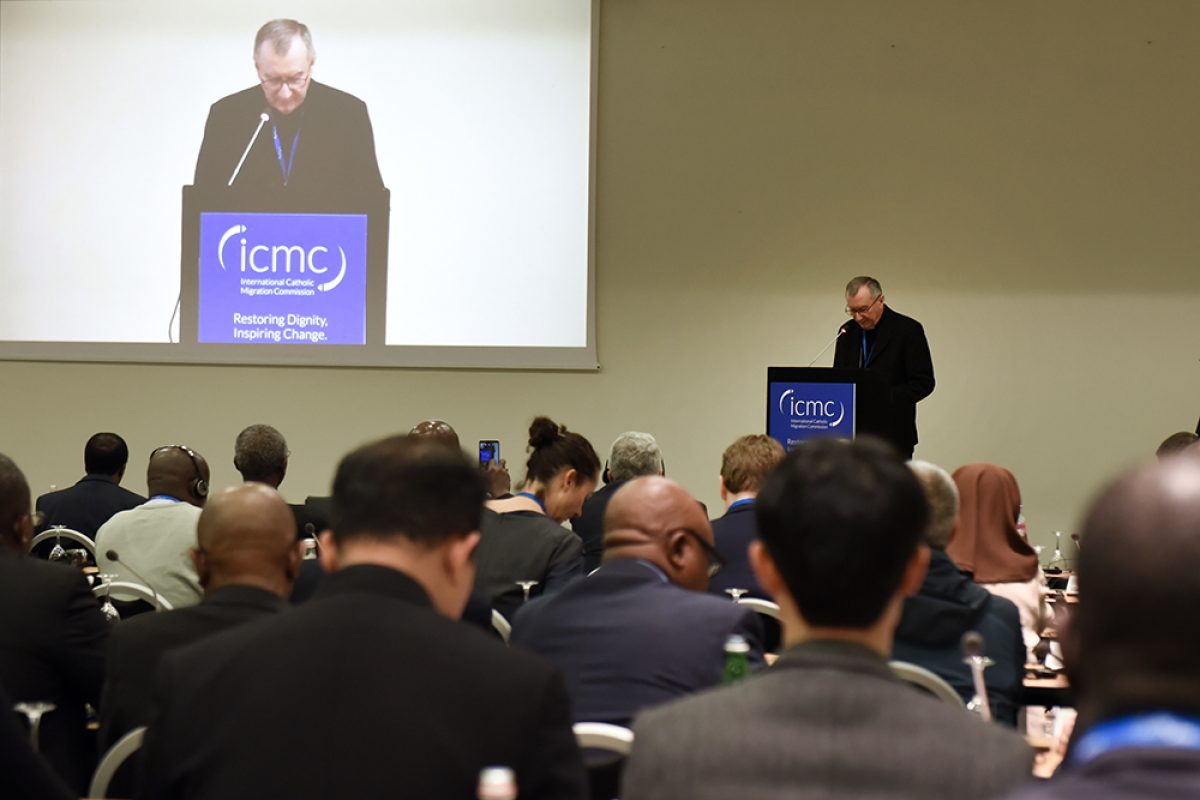Cardinal Parolin: Be Open to New Horizons of Service to Migrants and Refugees

A call to renewal and openness to new challenges were features of Cardinal Pietro Parolin’s address to the Council of the International Catholic Migration Commission.
Responding to the plight of migrants and refugees today demands we “be open to new horizons of service,” H.E. Cardinal Pietro Parolin stated in his opening remarks at the 6-8 March ICMC Council Plenary Meeting in Rome.
In his address to representatives of Catholic Bishops’ Conferences and specialized agencies from around the world, the Secretary of State to His Holiness Pope Francis stressed that ICMC’s work since its foundation has been “honored by a fruitful commitment.”
At today’s “crucial moment,” the organization is “called to provide for the Church and the world, as well as for itself, effective answers to new questions, and to consider the most appropriate contemporary way for it to carry out its commitment,” Cardinal Parolin added.
Overcome the refusal to welcome
“As Pope Francis always reminds us,” Cardinal Parolin said, migrants and refugees “are not numbers: they are people, women, men, children, who have a face, who often suffer and are discarded.”
In keeping with the Pope’s call for a renewed recognition of the humanity of migrants, Cardinal Parolin emphasized the need to keep migrant families united, to offer greater support for those left behind in war-torn homelands, and to create a more welcoming reception of migrants worldwide.
Even though migration “has become a characteristic element of our societies,” and “nations, especially the most economically advanced, undeniably owe a great deal of their development to migrants,” migration “is seen today only as an emergency, or a danger,” Cardinal Parolin said.
To overcome this “refusal to welcome,” Pope Francis reminds us that “a change of attitude towards migrants and refugees is needed on the part of everyone.” To bring about such a change of attitude is “one of the difficult tasks most urgently demanded today,” the Cardinal noted.
“Providing information and raising awareness” are ways in which ICMC “can help the Catholic Church to dispel many unfounded prejudices and fears regarding the reception of foreigners” and promote a realistic, “balanced and positive perception of migration.”
Another “special contribution” that arises from ICMC’s varied experiences in the field is that of “creating alternative and safe paths of migration, especially where [it is] caused by violent events or disasters,” the Cardinal said.
He encouraged the Commission to continue this work. “One of the best ways to save lives [is] avoiding dangerous journeys and the use of traffickers; keeping families together; protecting minors in need; [and] creating bonds of mutual trust between countries in this field.”
Ending his address, the Cardinal said to those gathered, “You are called to strengthen the structures and unity of those who work for the ICMC based upon principles, approaches and aims guided by the Church’s Social Doctrine, so that the scope of your work does not remain merely humanitarian. In this way, the people you help will appreciate the influence of ‘witness’ that only a personal experience of faith can offer.”
Watch Cardinal Parolin’s address to the ICMC Council Plenary Meeting